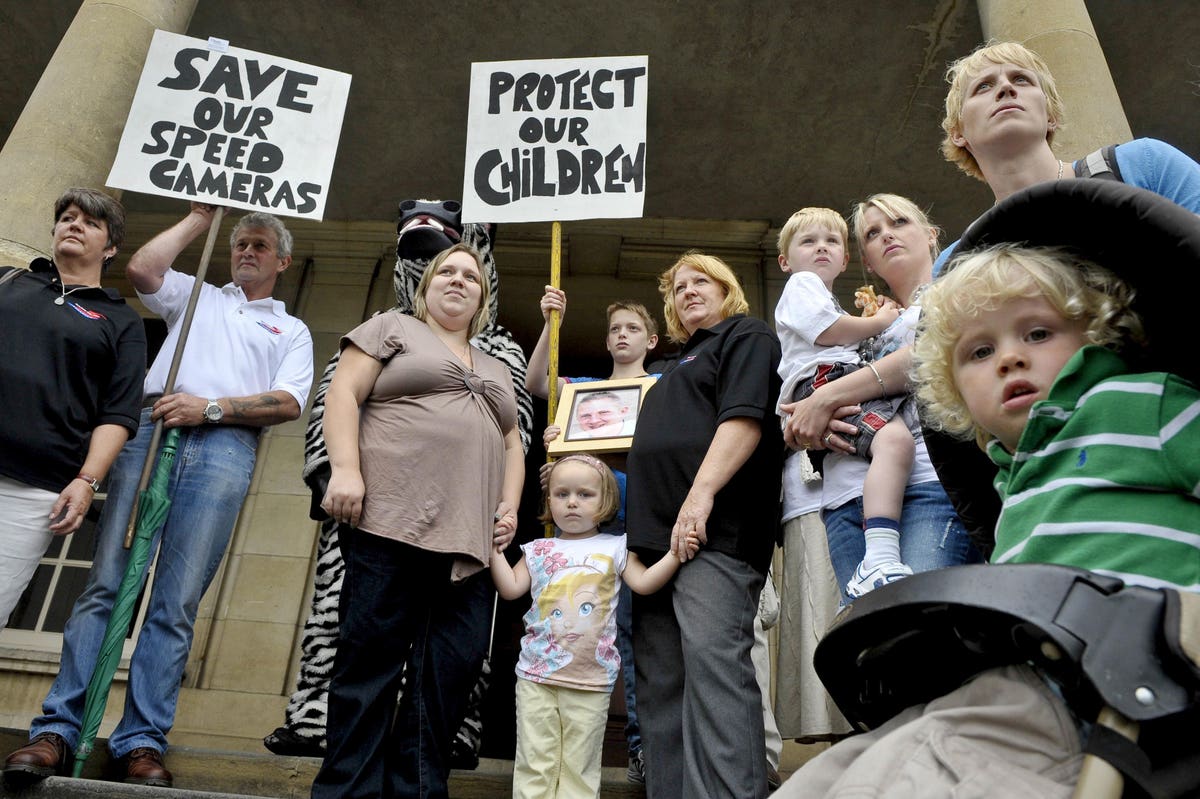- cross-posted to:
- fuck_cars@lemmy.ml
- cross-posted to:
- fuck_cars@lemmy.ml
Statistics published today by the U.K. Department for Transport (DfT) show that in 2022 85% of the car drivers in Great Britain broke the law by driving faster than the speed limit in 20mph zones. On roads with a 30mph maximum, 50% of car drivers broke the law, reveals the annual DfT report on speed limit compliance.
The measurements are based on speed data from a sample of Automatic Traffic Counters (ATCs) around the country. These exclude locations where external factors might restrict driver behavior, such as at junctions, on hills, beside sharp bends or where speed cameras are visible, says the DfT report.



There are quite a few caveats in there, like it was usually through roads with no traffic calming measures and they’re often the ones I see people get narked about complying with. I do think some of these should be reconsidered as 30mph.
20mph zones are usually created because of an issue. Either idiots speeding repetitively or some poor sod being hit by a speeding car.
If people are already speeding, lowering the limit will do little.
You are missing the point that speed limits are imposed because of the history of that road or type of road. Councils have a duty of care and must be seen to apply it.
London council was fined because a young child died with asthma. The parent sued because she was not made aware of the problem. She claimed there was not enough information regarding air quality. This is why you see ULEZ in the London area. If some poor kid is hurt by a car and they cannot prove the driver was speeding, then you have to assume the speed limit is too high. This is the culture we have adopted to protect ourselves from libel suites. The speed limit is not applied to piss you off, it is for the protection of others who use the road.
If this is unacceptable to you then write to your council and tell them that you will accept any liability claims for that road if they up the speed limit. You may also need to convince the people who live there, and send their kids out across that road.
Agree with what you said in full.
A lot of the conversation seems to be starting with “I don’t see why it should be 20mph so I’m going to ignore it”. I think your comment goes some way to explaining why this kind of thinking isn’t appropriate.
Roads aren’t just about cars and drivers.
Thanks. People can be very insular when it comes being inconvenienced.
I’m not missing the point at all. I’m saying that those that already break the rule won’t obey the new rule.
Beside a single car has a driver who is liable. A thousand cars has shared liability in the form of local government. Damage through speeding is a singular liabilty. Damage through air quality is group liability.
You can’t compare the two.
@wewbull @Syldon You compared the two.
@wewbull
That’s categorical thought, which is an error with a continuous variable such as speed.
That they break, or do not break, the law (“rule” doesn’t quite describe it).
You may also care to consider that if one driver does not exceed the limit, it moderates the speed of others behind - you’ve presented this as an individual decision, uninfluenced by others, but even taken as a guideline others have influence.
I am comparing the liability issue and how responsible people react. There is a huge problem with liability claims and costs. People in charge of money need to show they have done due diligence. You are right that some will never obey the rules, but that comes under an SEP (somebody else’s problem). It will no longer be the problem of a council.
deleted by creator
deleted by creator
deleted by creator
no problem, I will delete the reply.
How would you ensure compliance?
@wewbull @Syldon
If by speeding you mean 35 in a 30 zone, then will the drivers who know their journey is urgent and important, as are try, and that they are more skillful than those around them, drive 15mph above the limit, or 5mph?
They’ll stand out rather more if the former, and have a likelihood of killing a hit pedestrian or cyclist reduced by the change if the latter.
I suspect the chap recently apprehended for 61 in a 30 zone past children might not change, yes.
I don’t think most people are actively engaged when they speed and are rationally thinking about such things. They just travel at a speed which feels “right” for the conditions. Just changing the sign changes nothing for such people as it’s still the same road which has the same feel.
Make them 30mph and then 85% of people will break the new speed limit. Keep it low and at least their speed is likely to be lower.
Edit: This is not true as far as I can tell. Sorry.
Yeah they cover that in the report:
I mean that’s still too high and there’s no need for it.
edit: I presume the thinking is that if want 30mph, then you say 20 and the average speed is then under 30, which makes sense on small, narrow side streets but less so on the through roads they were surveying.